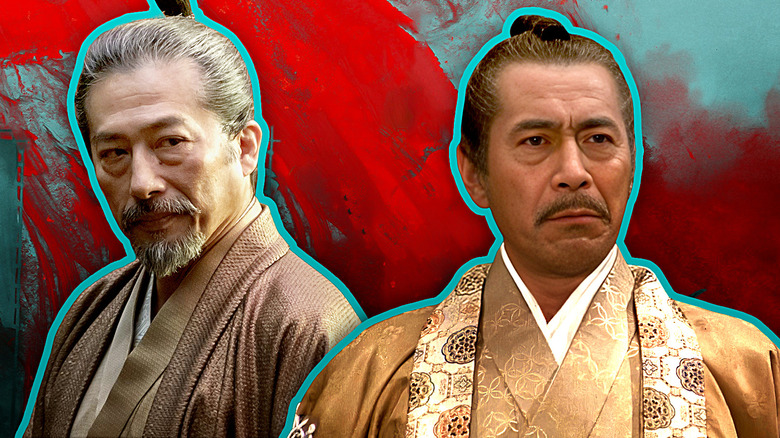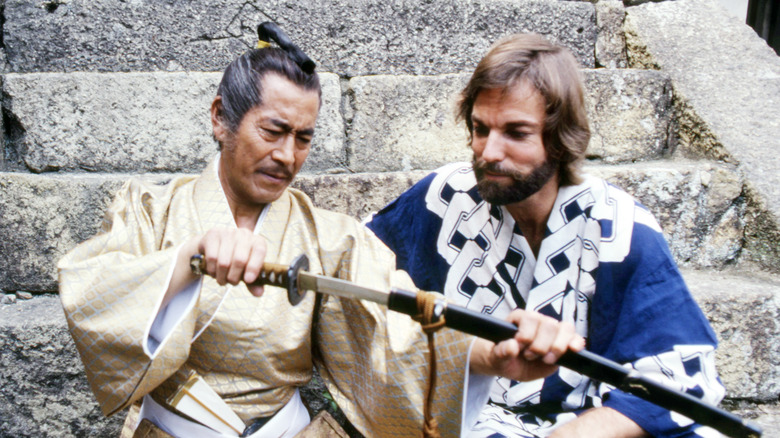Hulu's Shogun Is Great But The 1980 Miniseries Changed TV Forever
FX's "Shōgun" has been getting such rave reviews that it may be easy to think of it as the definitive live-action adaptation of James Clawell's novel of the same name. But there's another version that broke new ground for television decades before the current incarnation was even in pre-production. However, 1980's highly-rated "Shōgun" miniseries is almost impossible to watch these days because no streamer carries it. But if you happen to get your hands on a copy, then you'll be holding on to a slice of true TV history.
Though its reviews pale in comparison to the 2024 version, the 1980 "Shōgun" carries the distinction of breaking numerous television taboos. The series was the very first one to show things like urination and beheading on network TV, as well as the first show to use the word "piss." Combined with the thrilling story and a stellar cast led by Richard Chamberlain and Akira Kurosawa mainstay Toshirô Mifune, the trailblazing coarseness of the content worked. At the time, "Shōgun" was NBC's most successful TV miniseries ever and the second most viewed one in total after ABC's "Roots" — which also happens to be one of the best miniseries of all time.
The 1980 Shogun was a cultural event
The original "Shōgun" miniseries is a triumph that raked in three Emmys and three Golden Globes. While the challenges posed by the 1980 SAG-AFTRA strike may have removed some competition from the board and thus assisted "Shōgun's" runaway ratings success, the sheer quantity of eyeballs watching the NBC miniseries guaranteed that the comparatively over-the-top depictions of violence and nudity — the show also pushed the envelope by showing naked breasts — were as impactful as possible. It didn't exactly hurt that it happened to air during a time when the U.S. was increasingly interested in Japan's culture, which helped the show both ride the zeitgeist and contribute to it.
It's pretty unlikely that the 2024 version's Lord Yoshii Toranaga (Hiroyuki Sanada) and John Blackthorne (Cosmo Jarvis) can propel the FX show to similar cultural significance, regardless of how well-made the series is. As such, it may be best to appreciate the project for what it is instead of what it can achieve ... and if you enjoy it, it might just remind you to get started on that pile of samurai movies you need to watch.

